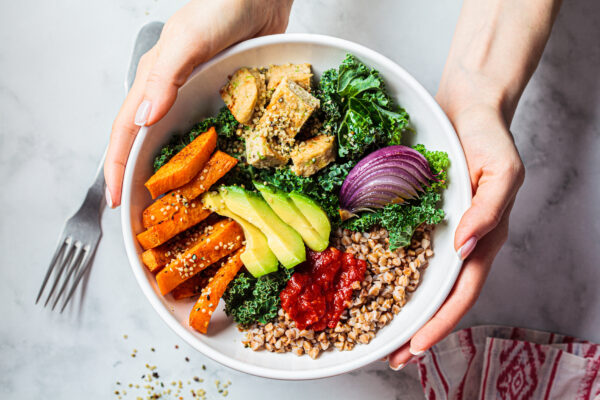Anti-Inflammatory Diets for Breast Cancer Patients: What to Eat and Avoid
Diet plays a crucial role in the management and prevention of breast cancer. An anti-inflammatory diet can help create an environment that inhibits cancer growth and supports overall health. By choosing the right foods and avoiding harmful ones, breast cancer patients can significantly enhance their treatment outcomes and quality of life.
The Importance of Anti-Inflammatory Diets:
Chronic inflammation is a major driver of cancer development and progression. By adopting an anti-inflammatory diet, patients can reduce inflammation, support their immune system, and create a less favorable environment for cancer cells. This dietary approach focuses on whole, unprocessed foods that provide essential nutrients and antioxidants.
Key Foods to Include:
Leafy Greens: Spinach, kale, and Swiss chard are rich in antioxidants and anti-inflammatory compounds.
These vegetables provide essential vitamins and minerals that support overall health and immune function.
Berries: Blueberries, strawberries, and raspberries are high in antioxidants that help combat oxidative stress.
These fruits are also low in sugar, making them ideal for maintaining balanced blood sugar levels.
Fatty Fish: Salmon, mackerel, and sardines are excellent sources of omega-3 fatty acids, which have potent anti-inflammatory properties.
Regular consumption of fatty fish can help reduce inflammation and support heart health.
Nuts and Seeds: Almonds, walnuts, flaxseeds, and chia seeds provide healthy fats, fiber, and antioxidants.
These foods can help reduce inflammation and support overall health.
Spices: Turmeric, ginger, and garlic have powerful anti-inflammatory and antioxidant properties.
Incorporating these spices into meals can enhance flavor and provide health benefits.
Foods to Avoid:
Processed Foods: Processed foods often contain trans fats, refined sugars, and artificial additives that can promote inflammation.
Avoiding these foods helps reduce the inflammatory burden on the body.
Sugar: High sugar intake can lead to increased inflammation and insulin resistance.
Limiting sugar consumption is essential for maintaining balanced blood sugar levels and reducing inflammation.
Trans Fats: Found in fried foods, baked goods, and margarine, trans fats are highly inflammatory and harmful to health.
Avoiding trans fats is crucial for reducing inflammation and supporting overall health.
Red and Processed Meats: High consumption of red and processed meats has been linked to increased inflammation and cancer risk.
Limiting these meats and choosing lean, organic sources of protein is beneficial.
Creating a Balanced Diet:
Meal Planning: Planning meals ahead of time can help ensure a balanced and nutritious diet. Focus on incorporating a variety of anti-inflammatory foods into each meal.
Mindful Eating: Eating mindfully and savoring each bite can enhance the digestive process and improve nutrient absorption. Avoiding distractions during meals helps promote mindful eating habits.
Hydration: Staying hydrated is essential for overall health and helps support the body's detoxification processes. Aim to drink plenty of water throughout the day.
An anti-inflammatory diet is a powerful tool in the fight against breast cancer. By choosing the right foods and avoiding harmful ones, patients can create an environment that supports healing and overall health. Embracing this dietary approach can enhance treatment outcomes, reduce inflammation, and improve quality of life.
Your journey to healing starts with each bite. Embrace the power of an anti-inflammatory diet and nourish your body for a healthier, cancer-free future.
